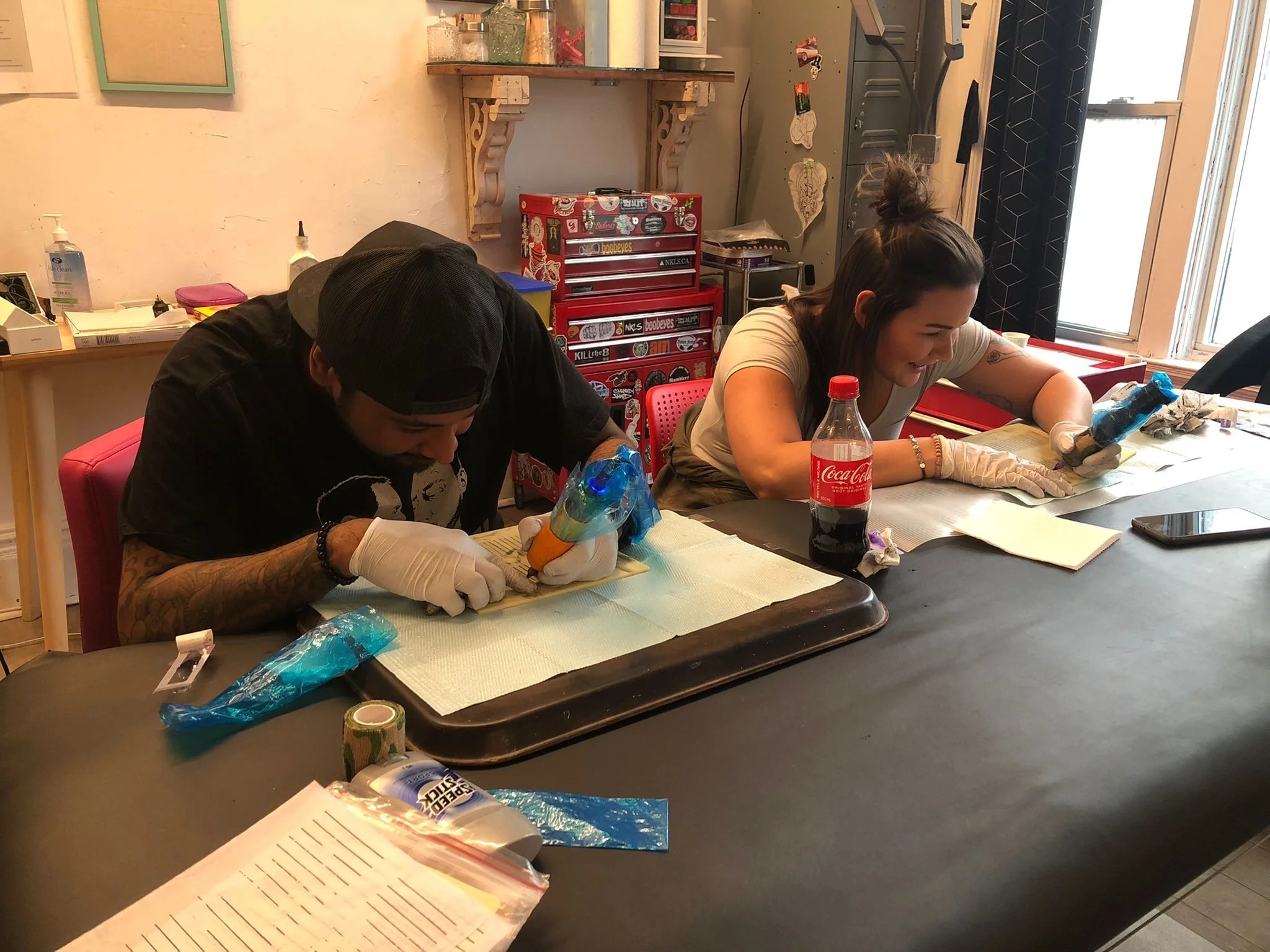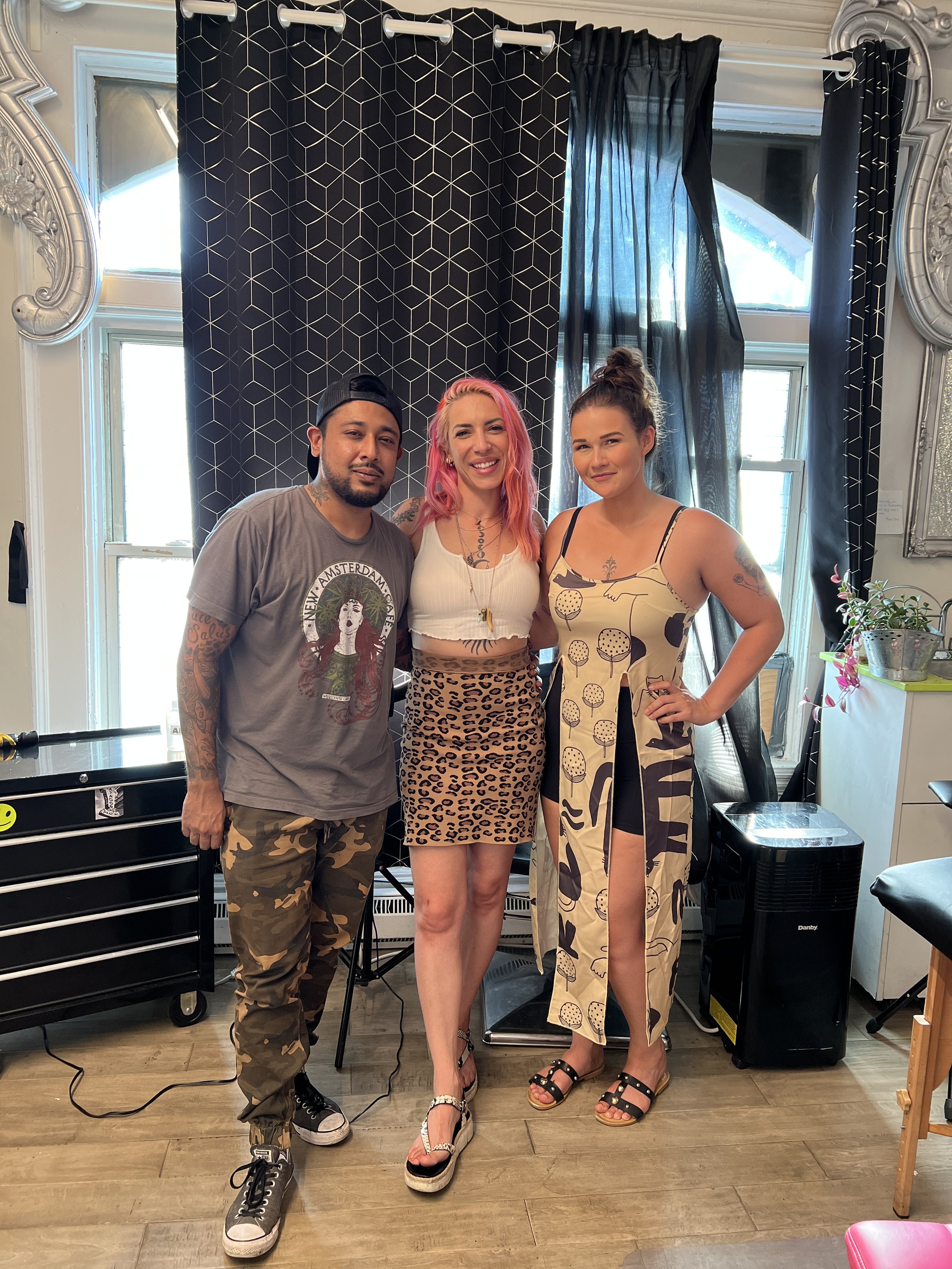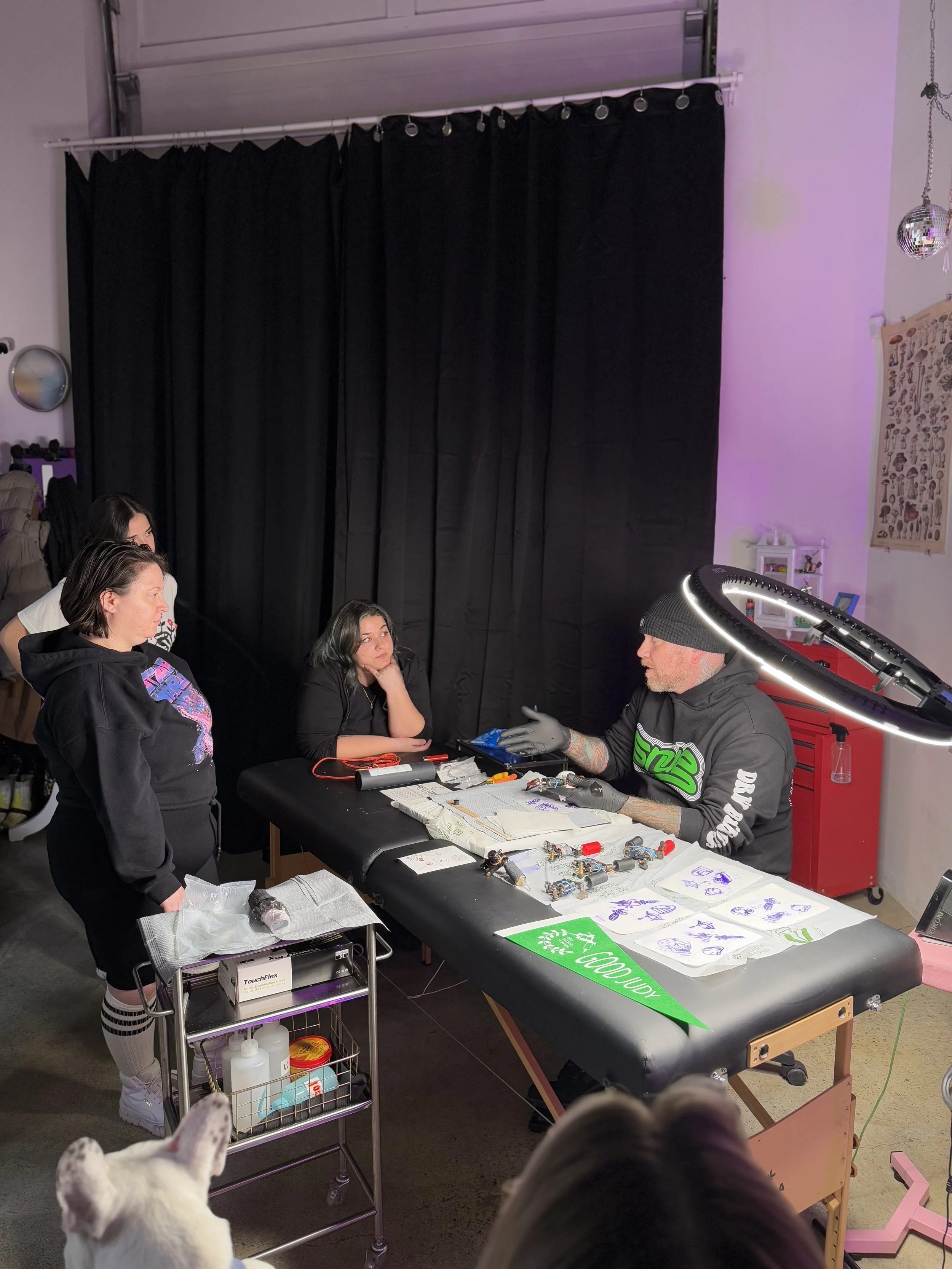How Long Are You a Tattoo Apprentice?
A Complete Guide to Starting Your Tattoo Career
If you’re passionate about art and body modification, becoming a tattoo artist might be your dream career. But before you’re running your own shop or inking sleeves full time, you’ll likely need to go through a phase that almost every professional artist starts with: the tattoo apprenticeship.
One of the most common questions people ask is:
How long are you a tattoo apprentice?
In this guide, we’ll answer that and cover everything you need to know, including:
How to become a tattoo apprentice
Do you get paid as a tattoo apprentice?
Can you be a tattoo apprentice at 16?
How much do tattoo apprentices make?
What does a tattoo apprentice do?
Do tattoo apprentices charge?
How much to tip an apprentice tattoo artist
How to make a tattoo apprentice portfolio
Do you have to apprentice to be a tattoo artist?
How Long Are You a Tattoo Apprentice?
On average, a tattoo apprenticeship lasts between 1 to 3 years. The duration depends on your mentor, your area’a state’s licensing requirements, and how quickly you develop the necessary skills.
The apprenticeship is usually broken into two main phases:
Observation and Shop Help (6–12 months)
You’ll begin by doing non-tattooing work such as:
Cleaning and sterilizing equipment
Setting up and breaking down tattoo stations
Scheduling clients
Watching your mentor tattoo
You’ll likely not touch a tattoo machine during this phase. It’s all about learning the health standards, hygiene, and ethics of the industry.
Tattoo Training (12–24 months)
WANT TO GET A HEAD START?
In our course Tattoo Fundamentals 4.0, we go beyond theory — you’ll actually see how professional tattoo artists prepare their stations, manage hygiene, and maintain client safety every single day.
From glove protocols and machine wrapping to proper cleaning chemicals and cross-contamination control, this course teaches the industry standards that separate a hobbyist from a true professional.
Most apprentices only discover these details after months of trial and error — you’ll master them before you even step into a shop.
Once your mentor sees that you’re ready, you’ll begin:
Tattooing practice skin
Tattooing friends (under supervision)
Taking on real clients
By the end of your apprenticeship, you’ll need a solid portfolio, a knowledge of bloodborne pathogens, and in most cases, the ability to pass a state licensing exam.
How to Become a Tattoo Apprentice
Becoming a tattoo apprentice is competitive and not as simple as filling out an application. Here’s how to get started:
1. Build a Strong Portfolio
A good tattoo apprentice portfolio should include:
15–30 original drawings
Clean linework and shading
Variety of styles (traditional, neo-traditional, realism, etc.)
No traced images — only original work
Tip: Your drawing skills are what get your foot in the door. No tattoo artist will mentor someone who can’t draw well.
2. Research Local Tattoo Shops
Visit tattoo shops in your area and look at:
Artist portfolios
Cleanliness
Shop reputation
Not old enough to apprentice yet?
Start with the fundamentals. Tattoo Fundamentals 4.0 gives you a structured path to build drawing, design, and hygiene skills now — so when you turn 18, you’re already apprentice-ready.
3. Approach a Mentor Respectfully
Don’t just email or DM. Show up in person, be polite, and bring your portfolio. Show you’re willing to work hard and learn.
Can You Be a Tattoo Apprentice at 16?
In most places, you cannot legally be a tattoo apprentice at 16. The minimum age is usually 18, and some states require you to be at least 18 to handle tattoo equipment or complete health certifications.
That said, if you're under 18 and serious about becoming a tattoo artist, here’s what you can do now:
Take art classes (digital and traditional)
Learn human anatomy
Practice line work
Build a portfolio
Start networking with local artists
READ OUR BLOG:
How Old Do You Have to Be to Get a Tattoo?
Curious to know if Canada, Ontario, or Toronto has restrictions on how young a person can be to get a tattoo? Find out more about Canadian Tattoo age restrictions
Do You Have to Apprentice to Be a Tattoo Artist?
In most parts of the U.S. and many other countries, yes, you do need to apprentice — or complete a formal training program — to legally become a tattoo artist.
States like California, Texas, and New York require artists to:
Complete a certain number of hours of supervised work
Pass a bloodborne pathogens course
Register with the health department
However, some states are more lenient or don’t require formal apprenticeships. Even then, trying to become a tattoo artist without mentoring is extremely difficult and risky.
Canada (Ontario):
Unlike the U.S., Canada does not have a national licensing system for tattoo artists. In Ontario specifically, there is no formal license required to tattoo. Instead, tattoo shops are regulated by local public health units, which set sanitation and safety requirements. This means:
You don’t need to hold a government-issued license to tattoo in Ontario.
What matters most is compliance with local health and safety regulations.
Most reputable artists still complete an apprenticeship to learn safe techniques, build their skills, and gain credibility — even though it isn’t legally required.
What Does a Tattoo Apprentice Do?
A tattoo apprentice’s role involves much more than just learning how to tattoo. Expect to:
Set up and clean stations
Restock supplies
Clean the shop
Sterilize equipment
Watch and take notes
Sketch and improve your art constantly
Handle customer service
Eventually, you’ll progress to tattooing practice skin, then real skin — under supervision.
Do You Get Paid as a Tattoo Apprentice?
In most cases, no — you don’t get paid as a tattoo apprentice. In fact, some apprenticeships require you to pay for the training.
Even if you’re not paying out of pocket, you’ll likely be doing:
Cleaning
Errands
Customer service
Shop maintenance
This is all considered part of your training. Once you start tattooing, you may begin to earn a percentage of the fee or tips, but don’t expect a salary right away.
How Much Do Tattoo Apprentices Make?
Tattoo apprentices usually make very little or nothing during the early stages of their training. Once they begin tattooing, they might earn:
$20–$50 per small tattoo
Or around 10%–30% of what the shop charges
This depends on the shop, the mentor, and local laws. Many apprentices rely on side jobs or savings while learning.
Can Tattoo Apprentices Charge?
Generally, tattoo apprentices can charge clients, but usually at discounted rates. This is often referred to as:
“Apprentice pricing”
“Portfolio pieces”
“Model tattoos”
These tattoos are usually done under the guidance of a licensed artist and may come with disclaimers, as the apprentice is still learning.
Important: In some regions, an apprentice cannot legally tattoo unless they have a temporary or apprentice license. Always check your local laws.
How Much to Tip an Apprentice Tattoo Artist?
Even if the tattoo is discounted, tipping is still encouraged. A fair range for tipping an apprentice is:
15%–25% of the price you paid
More if you’re especially happy with the work
Remember, many apprentices are not earning much — your tip supports their journey and shows respect for their time and effort.
Final Advice
Becoming a tattoo artist takes patience, hard work, and a lot of humility. Your apprenticeship is the foundation of your career — so take the time to learn, listen, and practice constantly.
If you're serious, focus on improving your drawing skills, building a professional tattoo apprentice portfolio, and connecting with local artists. The journey might be long, but it’s worth it to create art that lasts a lifetime.
Ready to start your tattoo journey?
Join Tattoo Fundamentals 4.0 — our complete beginner-to-apprentice course built to fast-track your tattoo career the right way. You’ll learn the real techniques working artists use every day: from proper machine setup and needle selection to linework precision, color packing, and client safety. We go beyond theory — every lesson is grounded in hands-on, real-world experience from seasoned professionals.
By the end, you’ll have the confidence, knowledge, and discipline that most apprentices take months to develop — and a clear roadmap to step into a shop fully prepared.







